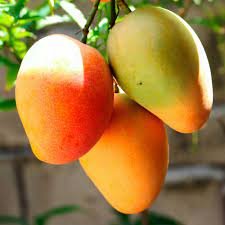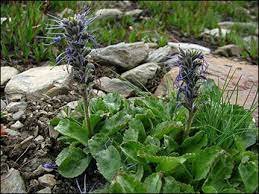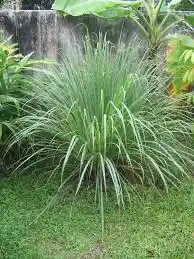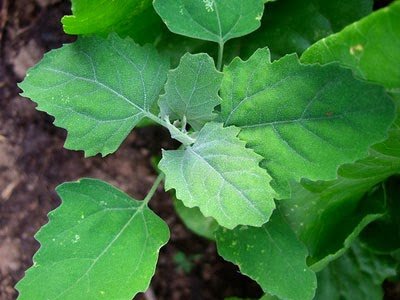What is Organic Manure?
Organic manure is a natural fertilizer derived from the decomposition of plant and animal residues. It enriches the soil with organic matter and essential nutrients, promoting healthy plant growth and improving soil structure. Organic manure can come in various forms, including compost, animal manure, green manure, and vermicompost.
Types of Organic Manure
- Compost:
- Source: Decomposed organic matter from kitchen scraps, garden waste, and agricultural residues.
- Characteristics: Dark, crumbly, and rich in nutrients and beneficial microorganisms.
- Animal Manure:
- Source: Animal excreta from livestock such as cows, chickens, and horses.
- Characteristics: High in nitrogen and other essential nutrients, but requires aging or composting to reduce pathogens and stabilize nutrients.
- Green Manure:
- Source: Specific crops (like clover, alfalfa, and legumes) grown and then plowed back into the soil.
- Characteristics: Enhances soil fertility and structure, adds organic matter, and fixes atmospheric nitrogen (in the case of legumes).
- Vermicompost:
- Source: Organic waste processed by earthworms.
- Characteristics: Rich in nutrients and beneficial microbes, improves soil aeration and water retention.
Characteristics of Organic Manure
- Appearance: Varies by type but generally dark, crumbly, and earthy.
- Odor: Earthy smell, indicating proper decomposition.
- Moisture Content: Generally around 30-50%, providing good water retention and aeration.
- pH: Neutral to slightly acidic (6.0 to 7.5), suitable for most crops.
- Organic Matter: High organic matter content, enhancing soil structure and fertility.
- Microbial Activity: Rich in beneficial microorganisms that aid in nutrient cycling and disease suppression.
Nutrient Value per 1 kg
The nutrient content of organic manure varies depending on the source material and processing. On average, the nutrient values per 1 kg of organic manure are:
- Nitrogen (N): 0.5% – 2.5%
- Phosphorus (P2O5): 0.2% – 1.5%
- Potassium (K2O): 0.5% – 2.0%
- Calcium (Ca): 0.5% – 3.0%
- Magnesium (Mg): 0.2% – 1.0%
- Micronutrients: Trace amounts of essential micronutrients such as iron (Fe), manganese (Mn), zinc (Zn), and copper (Cu).
Relevance and Importance
- Soil Health Improvement: Enhances soil structure, water retention, and microbial activity, leading to healthier soils.
- Nutrient Supply: Provides a balanced source of essential nutrients, reducing the need for chemical fertilizers.
- Sustainable Agriculture: Promotes sustainable farming practices by recycling organic waste and reducing the environmental impact of synthetic fertilizers.
- Environmental Protection: Minimizes nutrient runoff and leaching, reducing the risk of water pollution and eutrophication.
- Cost-Effectiveness: Often a cost-effective alternative to synthetic fertilizers, especially when produced on-farm.
Use and Benefits
- Improved Soil Fertility: Organic manure enriches the soil with organic matter and essential nutrients, enhancing soil fertility and productivity.
- Enhanced Plant Growth: Promotes vigorous plant growth by improving nutrient availability, soil structure, and microbial activity.
- Disease Suppression: Contains beneficial microorganisms that can suppress soil-borne diseases and pests, reducing the need for chemical pesticides.
- Water Retention: Improves soil moisture retention, reducing the need for frequent irrigation and increasing drought resistance.
- Sustainable Agriculture: Supports sustainable farming practices by reducing reliance on synthetic fertilizers and promoting organic farming.
Crops Benefiting from Organic Manure
Organic manure can be used for a wide variety of crops, including:
- Vegetables: Tomatoes, potatoes, carrots, cucumbers, peppers, lettuce.
- Application Stage: Before planting, mix organic manure into the soil to improve fertility. Apply as a top dressing during the growing season to boost nutrient availability.
- Fruits: Apples, grapes, strawberries, citrus fruits.
- Application Stage: Apply organic manure in the planting hole during planting and as a mulch around the base of the plants during the growing season.
- Cereals: Wheat, rice, maize, barley, oats.
- Application Stage: Incorporate organic manure into the soil before sowing seeds to enhance soil fertility and structure.
- Legumes: Soybeans, peas, lentils, chickpeas, beans.
- Application Stage: Mix organic manure into the soil before planting and use as a top dressing to maintain nutrient levels during the growing season.
- Root Crops: Radishes, beets, turnips, carrots.
- Application Stage: Add organic manure to the planting beds before sowing seeds to improve soil structure and nutrient content.
- Leafy Greens: Spinach, kale, cabbage, lettuce.
- Application Stage: Apply organic manure to the soil before planting and as a top dressing during the growing season to provide a steady nutrient supply.
Benefits at Different Crop Stages
- Germination and Early Growth: Enhanced root development and early establishment due to better nutrient availability and microbial activity.
- Vegetative Stage: Improved plant vigor and growth, leading to robust plant development and increased resistance to stress.
- Reproductive Stage: Better flowering and fruit set, resulting in higher yields and improved quality of the produce.
Conclusion
Organic manure is a valuable resource for sustainable agriculture, offering numerous benefits such as enhanced soil fertility, improved plant growth, and reduced reliance on chemical fertilizers. By recycling organic waste into nutrient-rich manure, farmers can achieve better yields while supporting ecological balance and promoting sustainable farming practices. Integrating organic manure into crop management practices can lead to healthier plants, improved soil health, and a more sustainable agricultural system.









